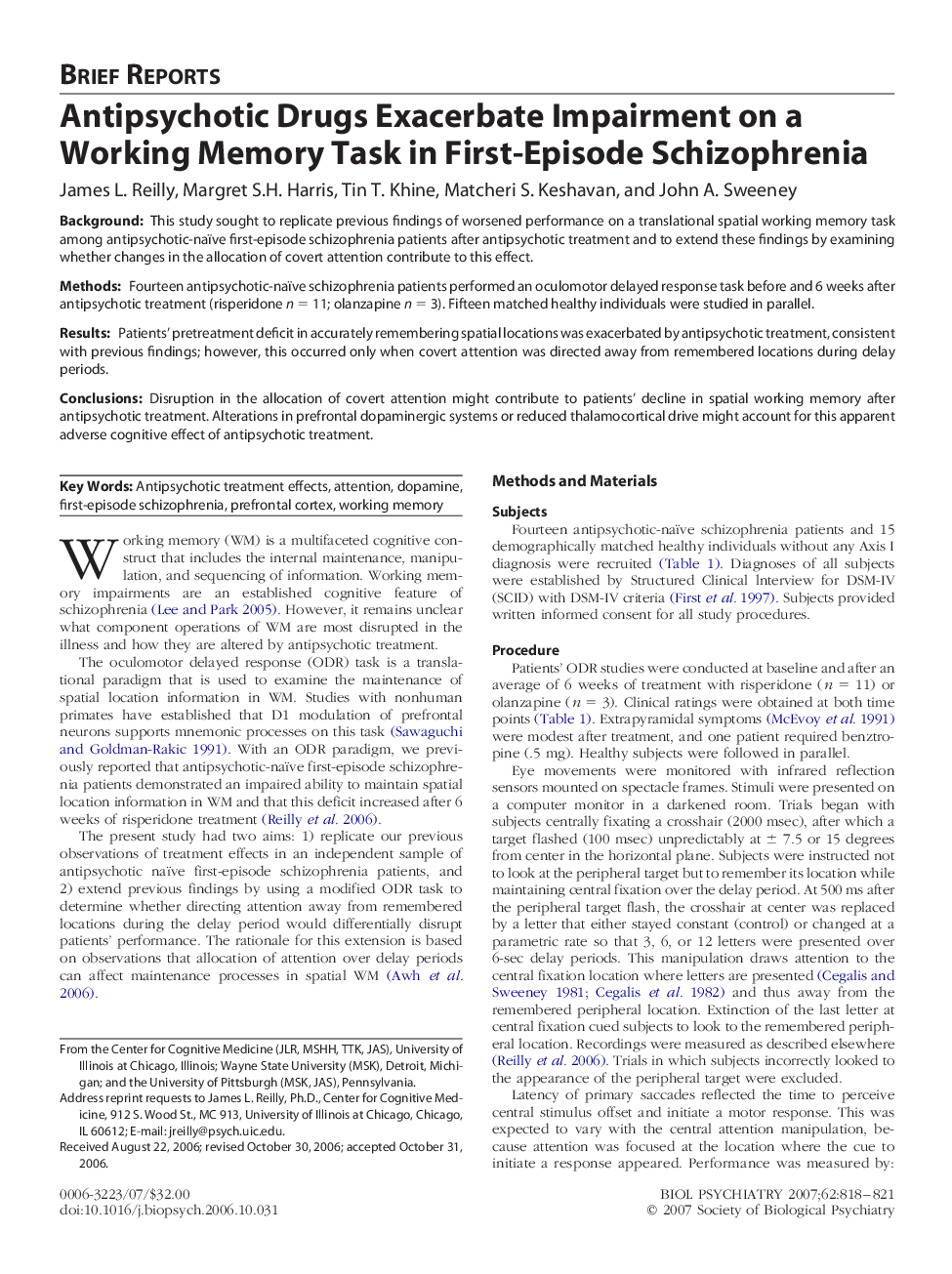| Article ID | Journal | Published Year | Pages | File Type |
|---|---|---|---|---|
| 4180212 | Biological Psychiatry | 2007 | 4 Pages |
BackgroundThis study sought to replicate previous findings of worsened performance on a translational spatial working memory task among antipsychotic-naïve first-episode schizophrenia patients after antipsychotic treatment and to extend these findings by examining whether changes in the allocation of covert attention contribute to this effect.MethodsFourteen antipsychotic-naïve schizophrenia patients performed an oculomotor delayed response task before and 6 weeks after antipsychotic treatment (risperidone n = 11; olanzapine n = 3). Fifteen matched healthy individuals were studied in parallel.ResultsPatients’ pretreatment deficit in accurately remembering spatial locations was exacerbated by antipsychotic treatment, consistent with previous findings; however, this occurred only when covert attention was directed away from remembered locations during delay periods.ConclusionsDisruption in the allocation of covert attention might contribute to patients’ decline in spatial working memory after antipsychotic treatment. Alterations in prefrontal dopaminergic systems or reduced thalamocortical drive might account for this apparent adverse cognitive effect of antipsychotic treatment.
